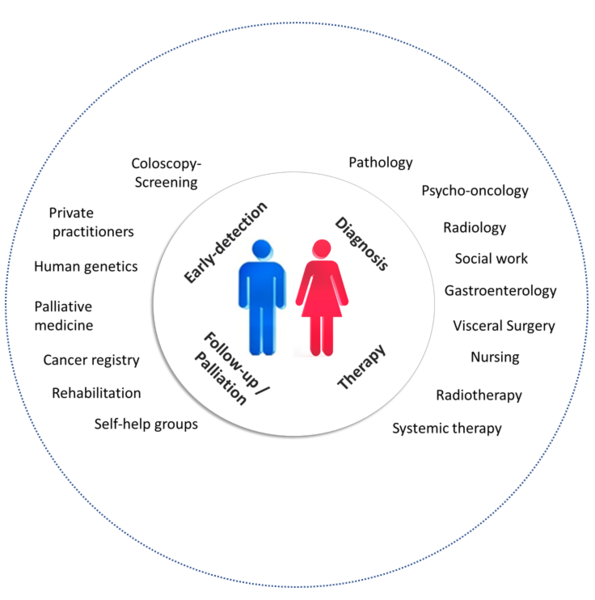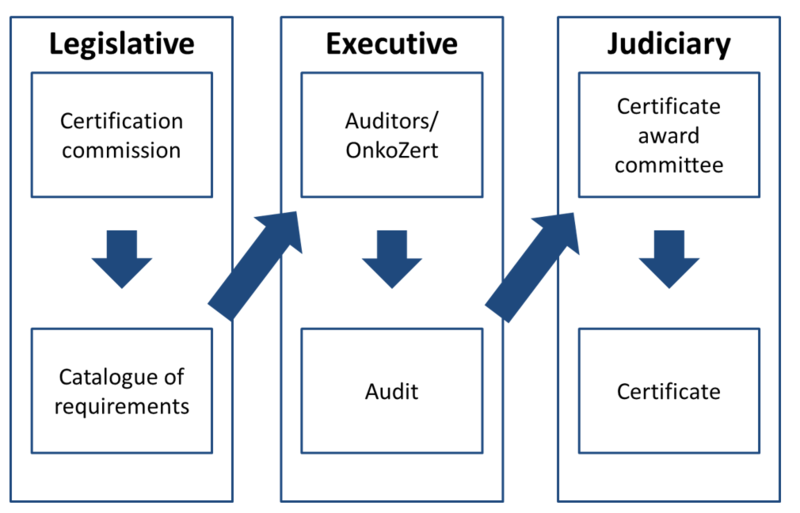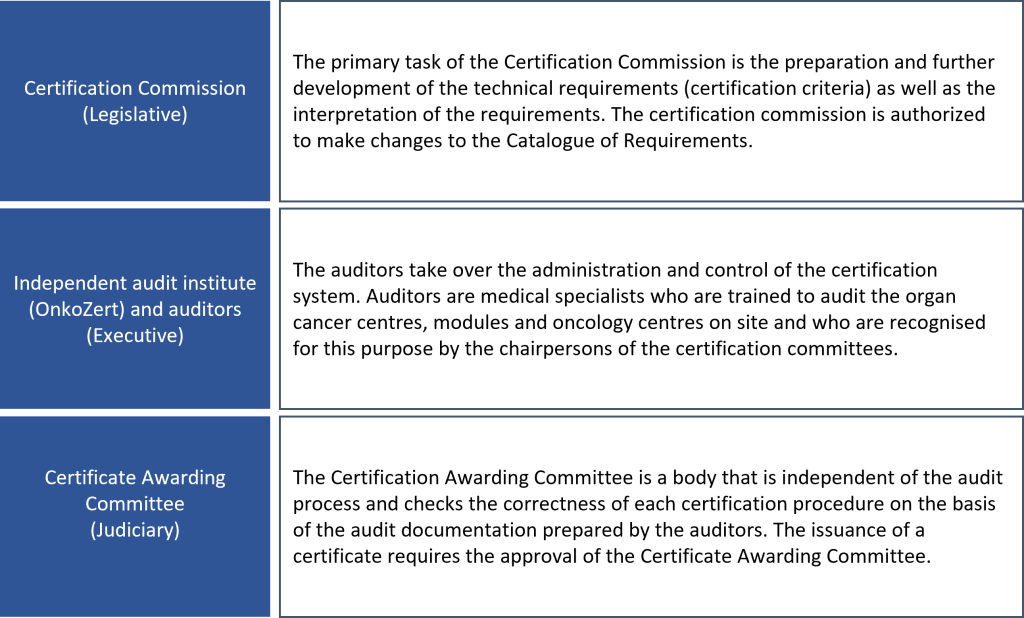Certification System
Certified Cancer Centres are tumour-specific networks of inpatient and outpatient facilities in which all medical specialties involved in the treatment of cancer patients work closely together and guarantee continuity of care. The so-called Organ Cancer Centres make up the broad basis to cover cancer care for prevalent tumour entities, such as breast or colorectal cancer.
The objective and mandate of the ECC Certification System is the establishment of a certified network in which patients are treated in a comprehensive, interdisciplinary and multi-professional manner on the basis of evidence-based guidelines. The quality of treatment within the network is recorded, evaluated and used for ongoing quality improvements as part of the audit processes.
The certified centre network on the example of Colorectal Cancer Centre:

Acquiring the certificate requires concordance with the standards laid out in the Catalogue of Requirements developed by the respective tumour-specific Certification Committee.
To provide the highest possible degree of independence for those who develop and those who review the requirements and their implementation and to avoid individual conflict of interests, the Certification System is divided into three branches that work independently of each other:

The Certification Commissions is the legislative entity. It has on average 30 representatives from scientific societies, professional associations, working groups and self-help groups. It draws together expertise from all medical specialties that treat oncological patients. The representatives draw up the Catalogue of Requirements and, by extension, the tumour-specific requirements based on the medical guidelines.
Oncological experts check the implementation of the requirements in the audit process (executive). They are non-voting members of the Certification Commissions. Hence, there is a clear separation between the legislative and executive. The auditors, who are all working as physicians, have undergone special training for their audit activities.
The decision about awarding a certificate (judiciary) is made in another, independent body, the “Certificate Award Committee”. Three trained experts are responsible for each procedure. They are free and independent in their evaluation. The Committee awards the certificates solely on the basis of the centre’s submitted documents and the audit documentation drawn up by the experts.
Below and overview of the areas of responsibility within the Certification System:
